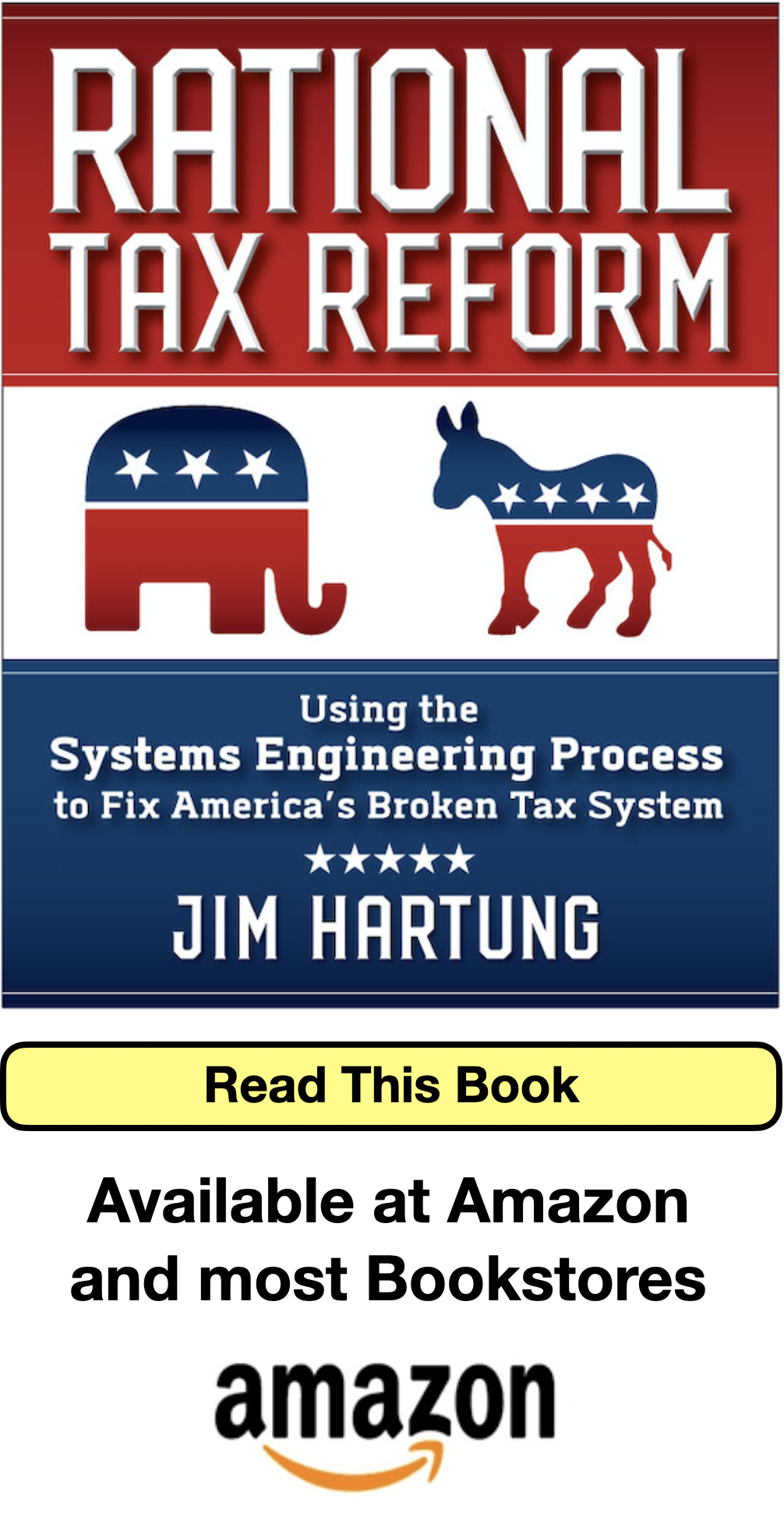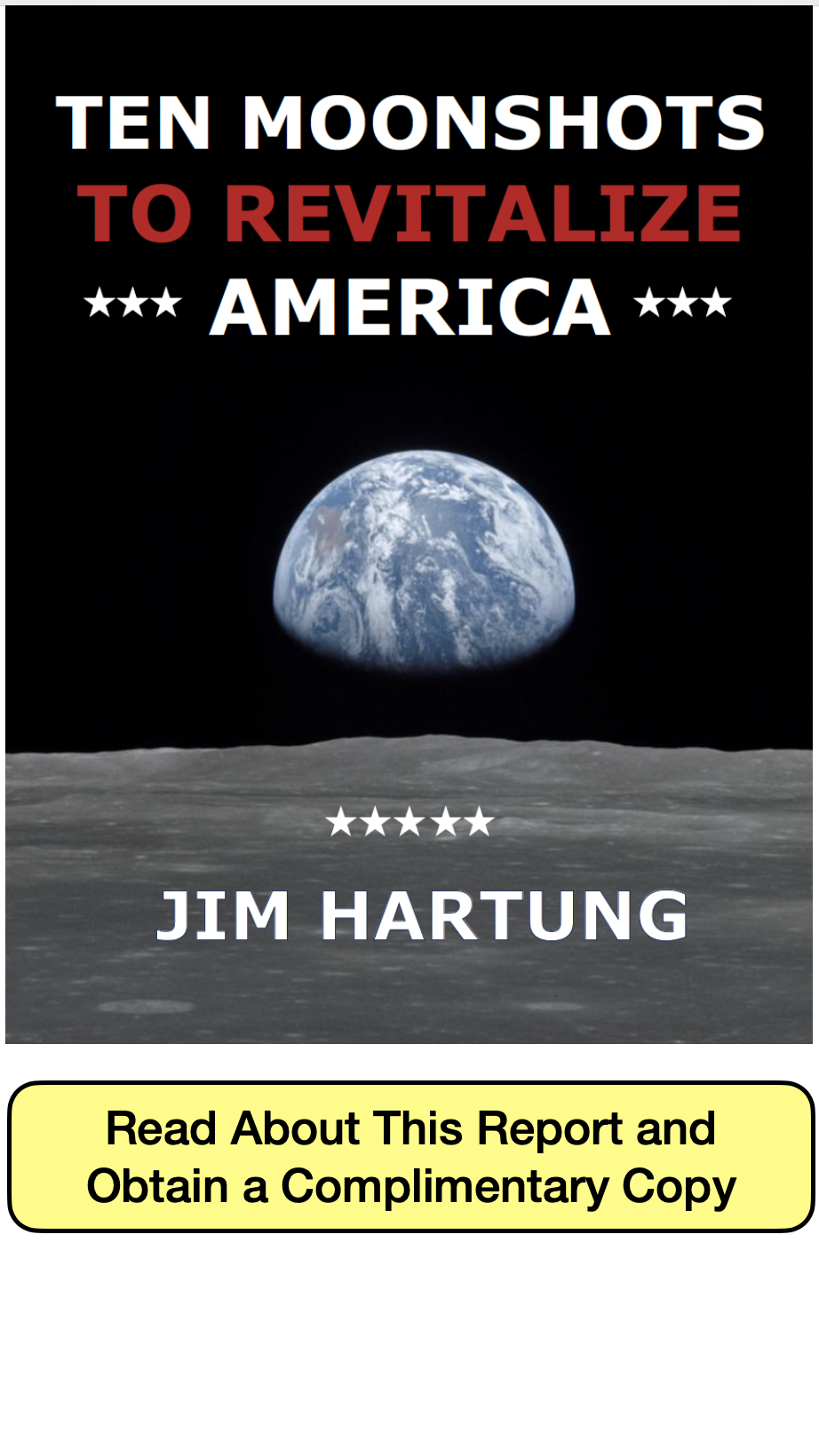Questions 10
Question 10: Has the coronavirus pandemic changed your views on any of the subjects addressed in your book?
Answer: I wrote the book Rational Tax Reform and the booklet Beyond Partisan Politics in 2019, before the coronavirus pandemic. Since we are still in the early stages of this pandemic, we do not yet know how it will end, and what lessons we will eventually learn from it.
Nevertheless, it is reasonable to ask how the lessons learned so far might change my book and booklet. My answer is that I would not change anything, based on what we know now. In fact, the pandemic is highlighting many weaknesses in our social, economic, and political systems that are addressed in my book and booklet.
Additional Information: Seven of my most important proposals are discussed in the following paragraphs. I would not change any of them. You can judge for yourself whether any (or all) of them are desirable in light of what we are learning from the coronavirus pandemic.
Health care reform: My proposed tax reform funds universal health care. To achieve this without increasing the economic burden on taxpayers, I developed a new approach to health care, which I call Medicare Choice. With this system, those who want Medicare will receive it. Those who opt out will receive premium support instead (for any health care insurance they choose). I designed Medicare Choice to provide universal health care, maximize choice, encourage competition, reduce cost, and maintain a strong, vibrant private health care industry. The pandemic has highlighted the weakness of the current health care system—and the need to replace it with something much better such as Medicare Choice.
Balanced budgets: My proposed tax reform balances the federal budget and includes an automatic feedback mechanism to ensure that the budget remains balanced, except during severe recessions and urgent crises. The coronavirus pandemic illustrates the importance of balancing the budget in good times so we have the financial capability to address serious problems when they occur. We must never allow the national debt to grow so large that we are unable to respond adequately to crises. Congress and the Trump administration have already passed a $2.2 trillion stimulus bill to address the coronavirus crisis, and they will probably need to spend at least $2 trillion more to help the economy recover. After the crisis ends, they need to balance the budget (and reduce the national debt as a fraction of Gross Domestic Product) so we are prepared for the next crisis. My proposed tax reform will do that.
Climate change: Because of the coronavirus crisis, most Americans now realize—perhaps better than ever before—that an ounce of prevention is worth a pound of cure. Climate change is a huge long-term threat. We must prevent this threat from becoming a climate catastrophe. My proposed tax reform includes carbon dividends, which can reduce greenhouse gas emissions by as much as 90% in the next 30 years. Carbon dividends will also provide all Americans with monthly or quarterly dividend checks—roughly $10 trillion over the next 30 years. This money will come not from the federal government, but from a gradually increasing carbon fee collected from fossil fuel companies. Carbon dividends will encourage sustainable, long-term economic growth.
Economic inequality: The pandemic has highlighted the problem of income and wealth inequality. My proposed tax reform addresses inequality in four ways. First, it is a progressive tax, with a large refundable tax credit and carbon dividends to assist low-income and middle-income taxpayers. Second, it provides a strong social safety net, anchored by Medicare Choice and a financially solvent Social Security system. Third, it increases investment in education and infrastructure, which are especially important for the economically disadvantaged. Fourth, it includes many features (such as lower tax rates) to stimulate economic growth and create jobs, especially for low-income and middle income taxpayers.
Tax reform: Tax reform has not been high on the list of priorities for Congress and President Trump since passage of the Tax Cuts and Jobs Act in 2017. Some might argue that the coronavirus pandemic will make any discussion of tax reform impossible for the foreseeable future. However, I believe the pandemic makes tax reform essential. Tax reform is needed to stimulate long-term economic growth, balance the federal budget, fix the health care system, and address many other problems. As soon as the pandemic is brought under control, Congress and the president should develop a plan to improve America’s long-term future. This requires fundamental and comprehensive tax reform.
Partisan politics: I wrote Rational Tax Reform and Beyond Partisan Politics because I am concerned that hyper-partisan politics is damaging America and preventing us from achieving our potential. After observing the response of our political leaders to the coronavirus pandemic, I am more convinced than ever that lawmakers and policymakers need a process such as systems engineering to bridge the partisan divide. The coronavirus pandemic has exposed many problems with our social, economic, and political systems. We must fix these problems. However, I doubt that we can fix them with the current (hyper-partisan) political processes. We need a better process—such as systems engineering—to help Congress and the president develop practical, nonpartisan solutions for our most difficult problems.
Systems engineering: One of my most important recommendations in Rational Tax Reform and Beyond Partisan Politics is that Congress should establish a “systems engineering” organization to develop nonpartisan proposals for them to consider. If such an organization was in existence before the coronavirus hit, it could have prevented many of the problems that have been exposed by the virus. In addition, it could have helped Congress and the president develop a better response to the pandemic. Since such an organization does not exist, politicians themselves had to weigh the conflicting recommendations of health care professionals, economists, and others. It would have been far better if they had nonpartisan recommendations from a systems engineering group skilled in using facts and data to optimize a system—in this case, America’s response to the coronavirus.
Question 10: Has the coronavirus pandemic changed your views on any of the subjects addressed in your book?
Answer: I wrote the book Rational Tax Reform and the booklet Beyond Partisan Politics in 2019, before the coronavirus pandemic. Since we are still in the early stages of this pandemic, we do not yet know how it will end, and what lessons we will eventually learn from it.
Nevertheless, it is reasonable to ask how the lessons learned so far might change my book and booklet. My answer is that I would not change anything, based on what we know now. In fact, the pandemic is highlighting many weaknesses in our social, economic, and political systems that are addressed in my book and booklet.
Additional Information: Seven of my most important proposals are discussed in the following paragraphs. I would not change any of them. You can judge for yourself whether any (or all) of them are desirable in light of what we are learning from the coronavirus pandemic.
Health care reform: My proposed tax reform funds universal health care. To achieve this without increasing the economic burden on taxpayers, I developed a new approach to health care, which I call Medicare Choice. With this system, those who want Medicare will receive it. Those who opt out will receive premium support instead (for any health care insurance they choose). I designed Medicare Choice to provide universal health care, maximize choice, encourage competition, reduce cost, and maintain a strong, vibrant private health care industry. The pandemic has highlighted the weakness of the current health care system—and the need to replace it with something much better such as Medicare Choice.
Balanced budgets: My proposed tax reform balances the federal budget and includes an automatic feedback mechanism to ensure that the budget remains balanced, except during severe recessions and urgent crises. The coronavirus pandemic illustrates the importance of balancing the budget in good times so we have the financial capability to address serious problems when they occur. We must never allow the national debt to grow so large that we are unable to respond adequately to crises. Congress and the Trump administration have already passed a $2.2 trillion stimulus bill to address the coronavirus crisis, and they will probably need to spend at least $2 trillion more to help the economy recover. After the crisis ends, they need to balance the budget (and reduce the national debt as a fraction of Gross Domestic Product) so we are prepared for the next crisis. My proposed tax reform will do that.
Climate change: Because of the coronavirus crisis, most Americans now realize—perhaps better than ever before—that an ounce of prevention is worth a pound of cure. Climate change is a huge long-term threat. We must prevent this threat from becoming a climate catastrophe. My proposed tax reform includes carbon dividends, which can reduce greenhouse gas emissions by as much as 90% in the next 30 years. Carbon dividends will also provide all Americans with monthly or quarterly dividend checks—roughly $10 trillion over the next 30 years. This money will come not from the federal government, but from a gradually increasing carbon fee collected from fossil fuel companies. Carbon dividends will encourage sustainable, long-term economic growth.
Economic inequality: The pandemic has highlighted the problem of income and wealth inequality. My proposed tax reform addresses inequality in four ways. First, it is a progressive tax, with a large refundable tax credit and carbon dividends to assist low-income and middle-income taxpayers. Second, it provides a strong social safety net, anchored by Medicare Choice and a financially solvent Social Security system. Third, it increases investment in education and infrastructure, which are especially important for the economically disadvantaged. Fourth, it includes many features (such as lower tax rates) to stimulate economic growth and create jobs, especially for low-income and middle income taxpayers.
Tax reform: Tax reform has not been high on the list of priorities for Congress and President Trump since passage of the Tax Cuts and Jobs Act in 2017. Some might argue that the coronavirus pandemic will make any discussion of tax reform impossible for the foreseeable future. However, I believe the pandemic makes tax reform essential. Tax reform is needed to stimulate long-term economic growth, balance the federal budget, fix the health care system, and address many other problems. As soon as the pandemic is brought under control, Congress and the president should develop a plan to improve America’s long-term future. This requires fundamental and comprehensive tax reform.
Partisan politics: I wrote Rational Tax Reform and Beyond Partisan Politics because I am concerned that hyper-partisan politics is damaging America and preventing us from achieving our potential. After observing the response of our political leaders to the coronavirus pandemic, I am more convinced than ever that lawmakers and policymakers need a process such as systems engineering to bridge the partisan divide. The coronavirus pandemic has exposed many problems with our social, economic, and political systems. We must fix these problems. However, I doubt that we can fix them with the current (hyper-partisan) political processes. We need a better process—such as systems engineering—to help Congress and the president develop practical, nonpartisan solutions for our most difficult problems.
Systems engineering: One of my most important recommendations in Rational Tax Reform and Beyond Partisan Politics is that Congress should establish a “systems engineering” organization to develop nonpartisan proposals for them to consider. If such an organization was in existence before the coronavirus hit, it could have prevented many of the problems that have been exposed by the virus. In addition, it could have helped Congress and the president develop a better response to the pandemic. Since such an organization does not exist, politicians themselves had to weigh the conflicting recommendations of health care professionals, economists, and others. It would have been far better if they had nonpartisan recommendations from a systems engineering group skilled in using facts and data to optimize a system—in this case, America’s response to the coronavirus.

